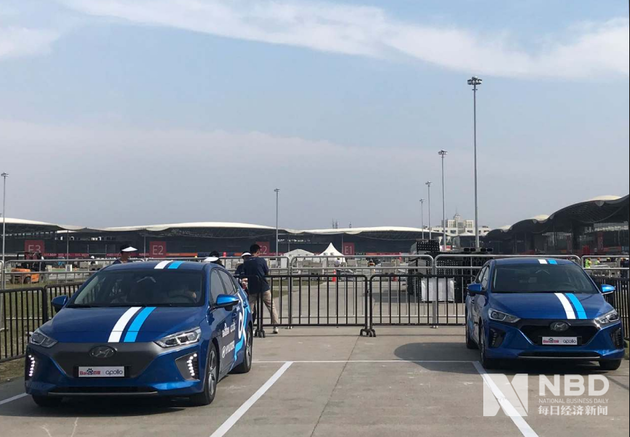Sept. 27 (NBD) -- On Thursday, residents in China's inland metropolis Changsha can get a thrill from Baidu (NASDAQ: BIDU)'s robotaxi services involving its first batch of 45 self-driving taxis jointly developed with Chinese carmaker FAW Hongqi.
Baidu, China's Internet search giant and a pioneer in artificial intelligence, debuted the trial operation of its Apollo Robotaxi ride hailing service in the city, following Google's trial journey of its corresponding service one year ago in Phoenix.

File photo/Qu Maomao (NBD)
"This car drives itself better than I do," a passenger told National Business Daily (NBD) after his test ride in Baidu's Apollo Robotaxi. The general public in Changsha can log into Apollo official website to apply for a test ride as a seed user.
Baidu's Apollo Robotaxi services are expected to run on a 50-kilometre-long open road by the end of 2019 in Changsha and the road is to be lengthened to 135-kilometre-long in the first six months of 2020, said the company.
"The robotaxi trial operations in Changsha demonstrate that the Apollo Robotaxi is progressing from research and development to a market reality, which will serve to provide rich feedback from real-world scenarios," said Zhenyu Li, vice president of Baidu and general manager of its intelligent driving group.
NBD noticed that the Changsha Municipal Government granted Apollo with official permission for shuttling passengers in its self-driving taxis in June this year and the developer has been testing its robotaxi fleet since then, basically 7 hours per day.
It is worth noting that Changsha is not the only Chinese city that gives license to operate the mobility service, and Wuhan gets a head start to win this futuristic competition.
On September 22, Wuhan, the capital city of central China's Hubei province, issued the first commercial license for companies including Baidu, Haylion Technologies and DeepBlue Technology to test and operate their intelligent driving services in open road conditions. Contrary to previous licenses for road tests, the commercial license strengthens the policy support for autonomous driving commercialization in China.
Although the permission to commercial use and trial operation of Apollo Robotaxi on Chinese roads mark a solid step forward, there foresees a long journey for intelligent driving to mature.
A human operator was assigned to each Apollo Robotaxi during NBD's test ride on Thursday, which is required by Chinese government to ensure passengers' safety.
"Self-driving can be available in certain areas in around 2025 while more time is needed to have a fully autonomous car than expectations," said Cheng Bo, the president of Suzhou Automotive Research Institute, Tsinghua University. Cheng stressed the biggest challenge for autonomous driving lies in safety issues.
Email: gaohan@nbd.com.cn


 川公网安备 51019002001991号
川公网安备 51019002001991号





